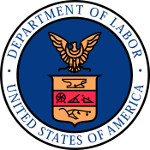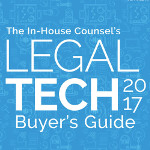By Keli Johnson Swan
Scott & Scott LLP
Autodesk sometimes reaches out to its customers to offer additional services, products, or upgrades on existing software. Autodesk’s business team may offer to conduct a license assessment to confirm a customer is properly licensing all of its software as part of the offer to provide additional services.
Autodesk may also request that the customer use Autodesk’s Inventory Analyzer (“AIA”) tool to capture the installations on the network and submit the data to Autodesk to review. The self-assessment process with Autodesk’s business team is different from an Autodesk audit initiated either directly from Autodesk pursuant to Section 9.7 of Autodesk’s License and Services Agreement, or from an entity such as BSA| The Software Alliance, which pursues copyright infringement investigations on behalf of Autodesk.
In some cases, responding to a request for a self-assessment can escalate into a contractual audit. It is significantly more time-consuming and expensive to defend a contractual audit.
The following are tips for navigating the self-assessment process and reaching a resolution for any licensing disputes.
1. Conduct a secondary review of the audit data to confirm accuracy. Although no auditing tool is infallible to errors in reporting, Autodesk will typically use the AIA results without validating their accuracy. A secondary review of the audit data can identify and correct any mistakes, including erroneous reporting of the same installation of software under different Autodesk software suites. Because Autodesk regularly requires customers to make purchases based on the data from the AIA, it is important to ensure the AIA is accurately reporting the installations in the environment.
2. Carefully scrutinize reports of current licenses to ensure all licenses are properly reflected. In addition to ensuring the audit data is accurate, Autodesk customers should also ensure that Autodesk’s entitlement reports reflect all of its existing licenses. If a customer discovers that any licenses it owns are not registered, or registered in the wrong name, it should take all of the necessary steps to correct those issues. With few exceptions, Autodesk typically objects to requests to transfer ownership of a license.
3. Dispute any inaccuracies in Autodesk’s assessment of license gaps. Sometimes Autodesk and a customer may disagree about the existence of any gaps between the number of Autodesk installations and the number of entitlements the customer owns. The disagreement may stem from inaccurate installation information, failure to properly apply licenses for other versions of the products (e.g., downgrades or upgrades) or missing license entitlements. Regardless of the nature of the dispute, a customer should carefully review all of the terms and conditions of the relevant license agreements in to ensure that Autodesk is properly calculating any licensing deficiencies. If necessary, a customer may choose to provide additional information to clarify or resolve any disputes. For example, some Autodesk products allow a backup copy to be installed on a laptop as long as the laptop and desktop instances are not used concurrently and each copy is accessed only by the same user. A dispute may arise if Autodesk counts both installations and applies only a single license, therefore creating a deficiency where none exists according to the text of the license agreement.
4. Engage In Consistent Communications with Autodesk. The most common reason Autodesk may escalate a customer dispute to its legal team is because the customer refuses to communicate after receiving an audit report indicating that there are license deficiencies. If a customer stops communicating with the Autodesk sales team, Autodesk will often escalate the issue to the legal department, where the penalties can become more severe. Autodesk may require the customer to pay a penalty that greatly exceeds the MSRP of the products in question. Although customers should not concede to resolve the dispute if the audit data or license entitlements reflected on the audit findings are significantly incorrect, a customer should communicate in writing all objections to the audit findings. Although it is not ideal, from a financial perspective, a customer may choose to agree to disagree on some minor discrepancies related to the audit in order to reach an amicable resolution. If a customer chooses this option, it must ensure that the agreement reflects all of the necessary provisions to protect the customer against any future claims.
5. Negotiate a resolution that includes a release of liability for all claims existing at the time of the assessment. Non-traditional Autodesk audits may allow more flexible settlement terms, which include the acquisition of new products or subscription maintenance rather than paying a penalty for past infringement. However, the most important provision is the release of liability provision. This release ensures that Autodesk cannot later seek additional damages for licensing deficiencies that occurred prior to the settlement. Unless the settlement specifically includes the acquisition of software to cover the deficiencies, the release does not typically create a license. In other words, without either purchasing software to cover a deficiency or removing the deficient installation, Autodesk could assert a claim for infringement for any installation that remains deficient after the parties finalize the settlement agreement. Management may also choose to enact additional protocols to prevent any unauthorized installations on a customer’s network.
These are just a few key issues to consider when resolving an Autodesk software license dispute. If it becomes necessary, it may be helpful to consult an attorney with expertise in Autodesk licensing disputes.
Join Our LinkedIn Group








